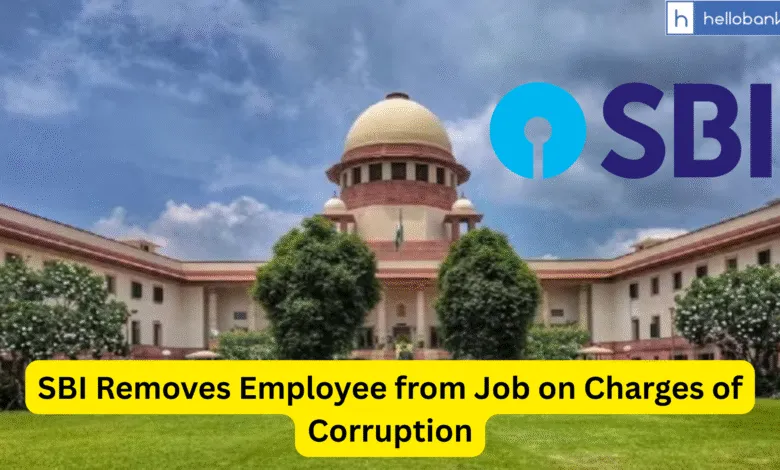SBI Removes Employee from Job on Charges of Corruption and Bribery

State Bank of India (SBI) has removed an employee on charges of corruption. Ramadhar Sao had joined SBI as a Class IV staff member and later became an Assistant. Between 2008 and 2010, he was accused of acting as a middleman in loan sanctioning, taking money from loan applicants, and also remaining absent from duty without authorization.
An internal inquiry was conducted, and it was found that he had taken bribes from customers to get their loans approved. Several loan applicants testified that they had paid him bribes. Based on this evidence, the Disciplinary Authority dismissed him from service in 2011.
Charge Sheet issued to SBI Employee
During the year 2007-2008, when you were working as a messenger in Agriculture Development Branch, Ramnagar, there were serious irregularities in the sanction and disbursement of loans to the customers mentioned in the following table in the branch, in which there are serious allegation of your involvement.
You were allegedly acting as a middleman in loan sanction and disbursement at the branch. You are charged of taking illegal gratification from a customer of the Bank (Account No. 30287568733, 30337461081, 30310977071, 30358112002, 30358122134, 30358122098) in lieu thereof.
You allegedly used to take loan proposals at branches as well as at your residence from the above mentioned customers (i.e. Account No. 30287568733, 30337461081, 30310977071, 30358112002, 30358122134, 30358122098) for documentation, after which only the sanction was possible.
You remained absent from the branch without permission from 20.04.2008 to 25.04.2008 during the course of investigation of irregularities, so as to deliberately evade the process of investigation.
Appeal against Decision
When he appealed against the decision, the punishment was slightly reduced in 2012 to removal from service with superannuation benefits (instead of outright dismissal). But he was dissatisfied with the decision and challenged the decision before the Patna High Court. The Patna High Court ordered his reinstatement with back wages. SBI then approached the Supreme Court.
The Supreme Court said that High Courts can interfere in disciplinary inquiries only if there are procedural lapses or violations of natural justice. The bench of Justices Rajesh Bindal and Manmohan ruled in favor of SBI, setting aside the Patna High Court’s order. The Court noted:
- No violation of natural justice: The employee was given due opportunity during the inquiry, and witnesses clearly testified against him.
- Limited role of writ courts: The Court stressed that judicial review under Articles 226, 32, or 136 of the Constitution is not meant to re-evaluate evidence like an appellate authority. High Courts can only step in if there is a clear violation of law, procedure, or principles of natural justice.
- Punishment orders: The Court further clarified that even if a disciplinary authority does not provide detailed reasoning while imposing punishment, the order remains valid as long as it accepts the findings of the Inquiry Officer.
The Supreme Court ruled that the Patna High Court wrongly interfered in the disciplinary matter despite no procedural irregularity being found.
It therefore set aside the High Court’s Single Bench and Division Bench orders and restored the punishment imposed by the Appellate Authority on 07.12.2012 — i.e., removal from service with superannuation benefits.
Download Court Order PDF (This PDF is available for Premium Users Only. Click here to join premium)
